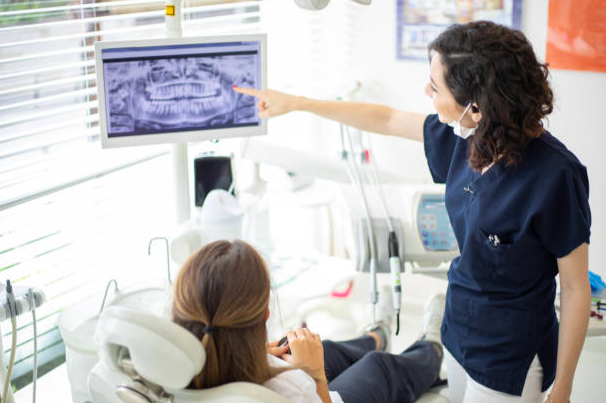
Dentists and specialists see gum disease as one of the most prevalent dental problems today. In many cases, soft tissue problems are not recognized by millions of Americans until they visit a dentist or periodontist. In order to improve your smile, an expert will recommend one of various types of gum grafts based on the severity of your case. Learn more about these unique procedures and what to expect.
Gingival Flap Surgery
Our 20602 periodontist may recommend this type of procedure if gum disease progresses and bacteria spreads under the soft tissue. The procedure involves lifting the tissue and cleaning the infected area to prevent worsening side effects (e.g., bone loss, tooth loss). Afterwards, the gums are secured to encourage reattachment.
Soft Tissue Graft
Gum recession is one of the most obvious symptoms of periodontal disease. As a result, your tooth structure and root become exposed, increasing the risk of tooth sensitivity and infection. In order to prevent more serious problems, your periodontist can attach tissue from the roof of your mouth or another nearby area to your receding gums. By doing so, the exposed tooth roots will be covered, and further gum recession will be prevented.
Crown Lengthening
While crown lengthening is commonly viewed as a cosmetic procedure, it is also excellent for treating gum disease. An overgrowth of soft tissue can make teeth appear short and “stubby.” Many individuals call this type of smile a “gummy smile.” Periodontists can remove unnecessary gum tissue and expose more of your natural tooth root. When you need a customized restoration (e.g., a dental crown), but lack sufficient tooth structure, this can be extremely beneficial.
Gum Regeneration
Your periodontist may recommend gingival flap surgery or gum regeneration if your soft tissues are infected. Instead of securing your gum tissue to your teeth, this process allows it to naturally regenerate. The entire procedure involves placing a bone graft into the area after folding back your gums to restore and create a healthier, more aesthetically pleasing smile.
Keeping your gums healthy is just as critical as keeping your teeth healthy if you want to avoid expensive and timely procedures. With a gum graft performed by a local periodontist, you can feel more confident and comfortable with your smile moving forward.
We specialize in treating issues related to your overall gum health. We invite you to contact our periodontics office in Alexandria, VA today to schedule an appointment.




